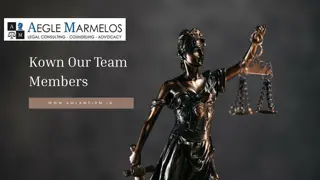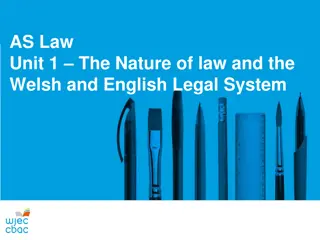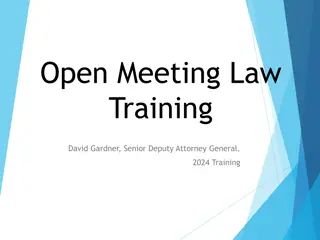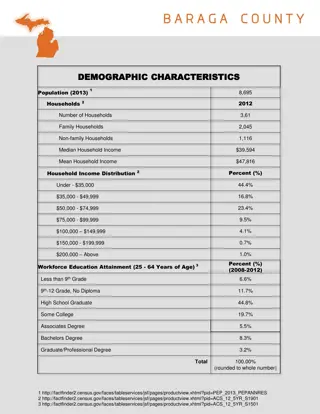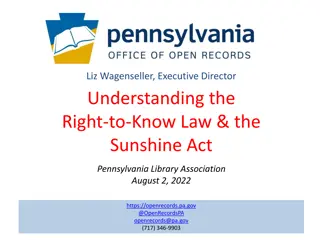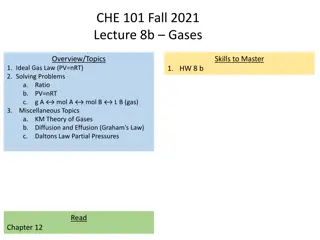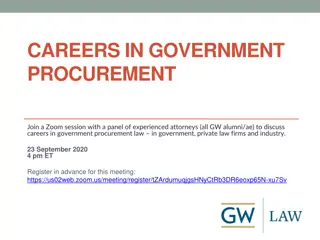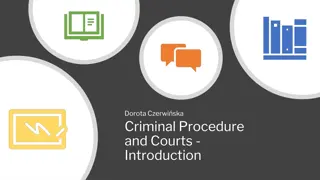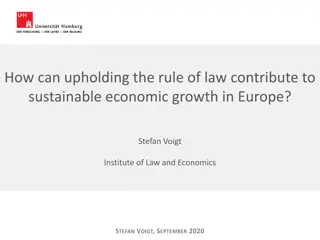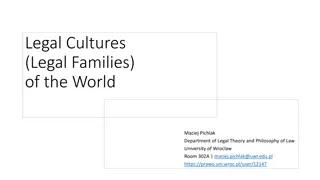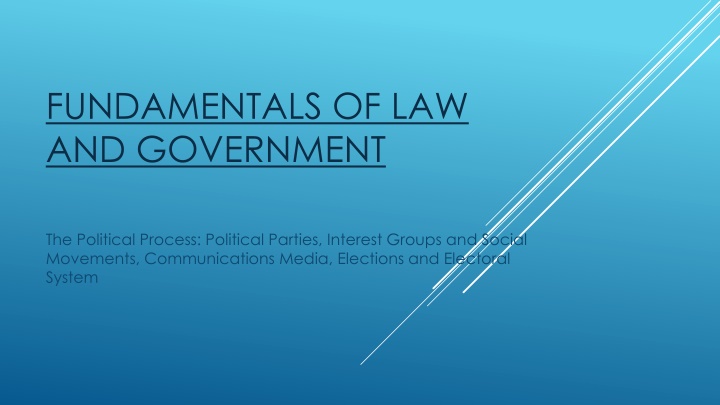
Fundamentals of Law and Government: Political Process, Parties, Interest Groups
Explore the intricate world of law and government, diving into topics like political parties, interest groups, the role of media, electoral systems, and more. Learn about the influence of interest groups on politics, different lobbying techniques, party structures, and the significance of elections in both democratic and non-democratic societies.
Download Presentation

Please find below an Image/Link to download the presentation.
The content on the website is provided AS IS for your information and personal use only. It may not be sold, licensed, or shared on other websites without obtaining consent from the author. If you encounter any issues during the download, it is possible that the publisher has removed the file from their server.
You are allowed to download the files provided on this website for personal or commercial use, subject to the condition that they are used lawfully. All files are the property of their respective owners.
The content on the website is provided AS IS for your information and personal use only. It may not be sold, licensed, or shared on other websites without obtaining consent from the author.
E N D
Presentation Transcript
FUNDAMENTALS OF LAW AND GOVERNMENT The Political Process: Political Parties, Interest Groups and Social Movements, Communications Media, Elections and Electoral System
Interest groups What are interest groups? What are membership organizations? What are nonmembership organizations?
What are anomic groups? What are nonassociational groups? What are associational groups? How do the interest groups influence on politics?
What is direct lobbying? What is grassroots lobbying? How does the interest groups campaign involvement look like? Intrest groups judicial involvement, is that possible? Protest as a method of interest groups influence on politics?
What is interest group pluralism? How do democratic corporatist societies look like? How does state autonomy, as a relationship between interest groups and government, look like? What is state corporatism?
Political parties What are political parties? What is the purpose of political parties? What is the difference between centralized and decentralized political parties? What is the difference between broad-based and limited membership political parties?
What is political party platform? What are the other functions of political parties? What is the difference between interest articulation and interest aggregation? What are majoritarian, multiparty, consensual, conflictual, or consociational party relations? How do political parties perform in nondemocratic countries?
Elections What are elections? What is the purpose of elections? Why elections are so important? Are elections limited only to democratic countries?
What is single-member plurality? What is proportional representation? What is single transferable vote?
What are the factors of voter turnout? On what voters decisions are based? What are sociological cleavages? What is retrospective voting? What is prospective voting?
Social Movements What are the social movements? Is there a single definition of a social movement? What is the history of social movements? When did the social movements originated?
How does the social movement work? How do the social movements influence on politics? Is democracy a necessary condition for a social movements to emerge? What is civil disobedience? Is there a conection beteen civil disobedience and social movements?
Communications Media What are communications media? Why the communications media are important? How do the communications media influence on politics? Who controls the communications media? Is the Internet an alternative for more traditional communications media?

